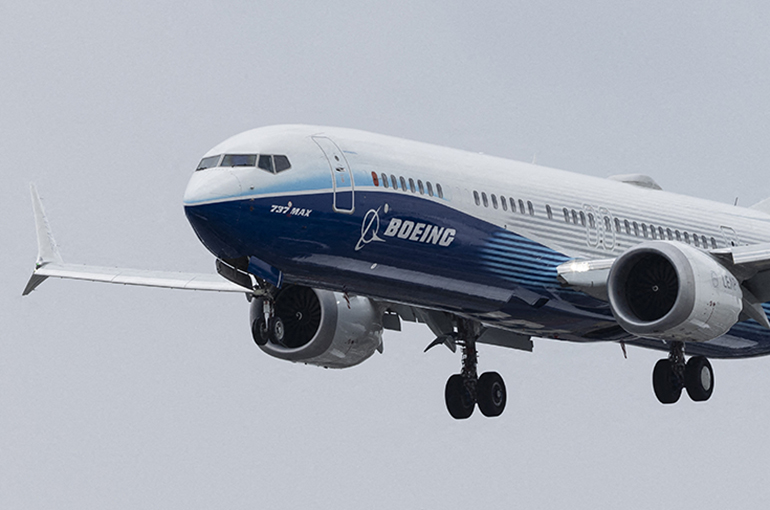 Air China, Xiamen Airlines Return Three Boeing Jets in a Week
Air China, Xiamen Airlines Return Three Boeing Jets in a Week(Yicai) April 25 -- Air China and Xiamen Airlines have returned three Boeing 737 Max planes they ordered from their US maker over the past week, after China imposed a minimum 125 percent border tax on goods imported from the United States in retaliation for jacked up US tariffs.
A 737 Max scheduled for delivery to Air China, the country’s flag carrier, flew back to Seattle from Zhoushan in Zhejiang province yesterday. Two in the livery of Xiamen Airlines were also returned to the US late last week.
Seattle-based Boeing has delivered 20 aircraft to Chinese airlines this year, with plans to deliver another 29 by Dec. 31, according to fleet data provider Cirium. That now seems uncertain.
“The 125 percent tariff on aircraft imported from the US will result in a massive cost increase for airlines,” said Lin Zhijie, a civil aviation industry expert. “Carriers can deal with it by seeking alternative sources or delaying fleet expansion,” he said, adding that since China’s aviation market has excess capacity, deferring fleet growth would not impact operations greatly.
Executives at a number of Chinese airlines told Yicai that they have not only stopped accepting Boeing aircraft but have also paused buying aviation materials and components from the US.
The fees paid for Boeing aircraft by leasing companies will also incur the latest tariffs, said a senior executive at one such firm. Some airlines have made advance lease payments for several months or paid taxes on existing orders, while new orders are not being accepted, the person added.
For Boeing, China was once its biggest overseas market, delivering a quarter of its new planes to the country at its peak in 2018, including 181 737s and more than 20 wide-body aircraft.
The plane maker delivered just 13 planes to China between 2020 and 2023 after its 737 Max jets were grounded following two fatal crashes. Although that rose to 54 last year, it only equalled half of the shipments made by its biggest rival, Europe’s Airbus.
The share of Airbus jets in China grew to 53 percent from 49 percent at the end of last year from January 2019, while that of Boeing aircraft fell to 41 percent from 46 percent, according to statistics from Flight Manager.
Airbus plans to deliver 136 planes to China this year and 148 next year, according to Cirium.
In addition to facing the pressure of order diversification, the manufacturing cost of Boeing aircraft is also increasing due to the impact of the new tariffs, with the company having more than 30 direct suppliers in China. The additional levies the US government imposed on steel and aluminum used in planes also add to production costs.
Editor: Martin Kadiev